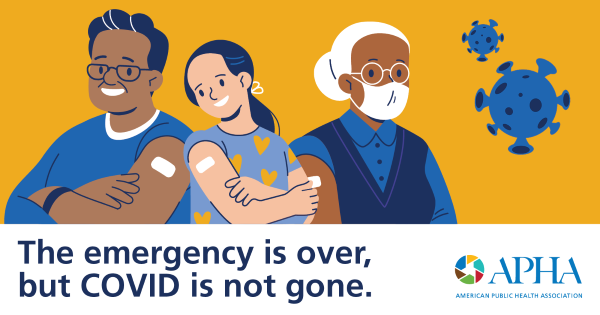COVID-19 is a disease caused by the SARS-CoV-2 virus that led to a global pandemic from 2020-2023. Most people who contract COVID-19 have cold or flu-like symptoms, with some cases leading to severe illness.
Over one million Americans died from COVID-19 during the pandemic. Many of these deaths were preventable and put a spotlight on health inequities, political polarization and public health underfunding that already existed in the U.S. and persist today.
What's Next
The federal COVID-19 public health emergency ended in May 2023, but the virus remains a threat. Prevention and treatment are key to keep our communities safe and healthy. Everyone eligible should get updated COVID-19 vaccines as they become available.

Feeling sick?
According to CDC guidelines, people with respiratory symptoms should:
- Stay home until fever free for 24 hours without medications and symptoms are improving.
- For the next five days, take extra precautions when around others indoors.
Remember, COVID-19 vaccines are still free for everyone.
Access to testing and treatment will vary depending on insurance status.
The Bridge Access Program for COVID-19 Vaccines and Treatments provides funding to help maintain access to COVID-19 care for uninsured adults. Learn more and share about the program with this one-page overview (PDF) and talking points (PDF).
APHA Resources
Throughout the pandemic, APHA urged the public health community to share science-based information with the public and spoke out for outbreak response funding and support. See a selection of our resources: